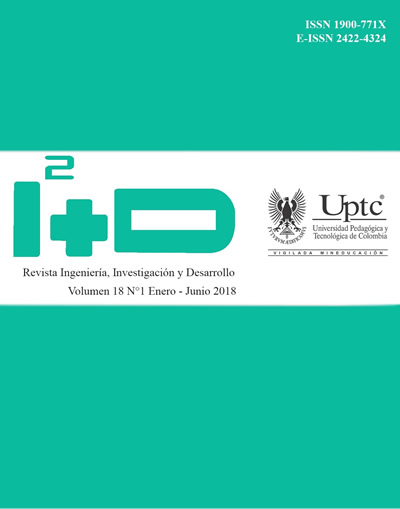Collaborative inventory coordination model supported in a sociotechnical approach of systems

Abstract
This paper presents an alternative model of inventory coordination for vertical integration between a supplier and multiple customers. The originality of the model lies in three main elements. The first is that the level of service offered follows a deductive approach, using a priori a mathematical definite model. The second one is that the supplier directs the strategy of management of the availability of the collaborative inventory. The third one is that the methodological design uses a technical - economic validator. First, the literature checked to position the investigation. Later, they present the principal methodological elements that were used, principally the procedure to value the impact of the approach sociotécnico of systems load and improvement of the model ARU in that supports the scheme of collaboration. Finally, the validation results of the model are presented and analyzed in critical form.
Keywords
Extended Company, healthy company, coordination mechanism, collaborative inventories, model Administration-Relief-Utility.
References
- M. Albrecht, Supply chain coordination mechanisms: New approaches for collaborative planning. Berlin-Heidelberg, Germany: Springer Science & Business Media, 2010, pp. 35-62.
- M. Barrios-León, “Efectos del desgaste laboral, como riesgo psicosocial, en la productividad”, [Tesis Doctoral], Dpto. Ing. Industrial, Ing., UC, Valencia (Venezuela), 2014.
- E.W. Davis and R.E. Spekman, The Extended Enterprise: Gaining Competitive advantage through collaborative supply chains. New York, USA: FT Press, 2004, pp. 3-28.
- C. González y J.A. Barrios, Análisis discreto en Economía y Empresa. Madrid, España: Editorial AC, 2000, pp. 76-134.
- H.W. Hendrick & B.M. Kleiner, Macroergonomics: Theory, Methods and Applications. Mahwah, New Jersey, USA: Lawrence Erlbaum Associates, Inc., Publishers, 2002, pp. 25-96.
- K. Kempf et al., Planning production and inventories in the extended enterprise: a state of the art handbook (Vol. 1). New York, USA: Springer Science & Business Media, 2011, pp. 233-268.
- L.A. Metzler, (1941, Aug.). The nature and stability of inventory cycles. The Review of Economics and Statistics, 23(3), 113-129.
- http://www.jstor.org/stable/1927555
- O. Palacio-León, M. Barrios-León, y W. Adarme-Jaimes, “Modelo de coordinación de inventarios colaborativos soportado en criterios de productividad saludable”, IV-CIIO. Medellín, 2017, 10p.
- O. Palacio-León, “Equilibrado y diseño de líneas de ensamble mixtas orientados por criterios de productividad saludable”, working paper, Facultad de Ingeniería, Programa de Ingeniería Industrial, Universidad Militar Nueva Granada-Sede Bogotá, 2017, 20p.
- O. Palacio-León & W. Adarme-Jaimes, La higiene industrial como elemento de diseño de centros de distribución de mercancías urbanas. Cuadernos de Ingeniería: Innovación y tecnología de vanguardia, Vol. 1, 2015, pp. 118-129.
- O. Palacio-León, “Propuesta metodológica para el diseño y operación de instalaciones de almacenamiento modulares ecoeficientes para productos no perecederos”, [Tesis Maestría], Dpto. Ing. de Sistemas e Industrial, Facultad de Ingeniería, Universidad Nacional de Colombia, Bogotá D.C (Colombia), 2012.
- T.L. Smith-Jackson, M.L. Resnick, & K.T. Johnson, Cultural Ergonomics: Theory, methods, and applications. Boca Raton, USA: CRC Press, 2014, pp. 187-206.
- R.J. Trent, Gerencia estratégica de suministros: diseñe su propia fuente de ventaja competitiva. Traductor María Teresa Aparicio, Bogotá, Colombia: Panamericana Editorial, 2018, pp. 120-160.
- G. Villalobos, A.M. Vargas, J. Escobar, M.L. Jiménez, & M.A. Rondón, Batería de instrumentos para la evaluación de factores de riesgo psicosocial. Bogotá D.C, Colombia, Ministerio de la Protección Social, 2010, 99p.
- W.K. Viscusi, (2004, January). The value of life: estimates with risks by occupation and industry. Economic Inquiry, 42(1), 29-48.
- https://doi.org/10.1093/ei/cbh042
- J. Wieland, Creating Shared Value–Concepts, Experience, Criticism. Friedrichshafen-Württemberg, Germany: Springer, 2017, pp. 6-77.